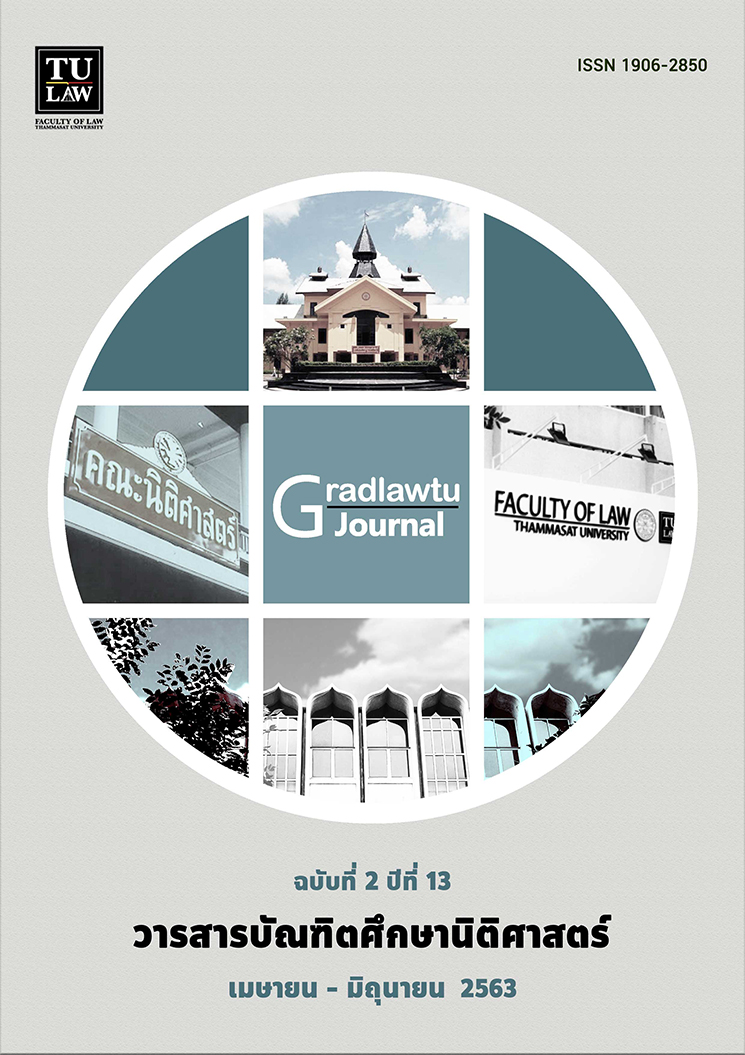LEGAL MEASURES TO CONTROL HEALTH TECHNOLOGY BUSINESS : A CASE STUDY IN TELEMEDICINE SYSTEM
Keywords:
Telemedicine system, Distance medical, Health businessAbstract
Nowadays, communication technology has become an important part of daily life, whether in agriculture, education or public health. In addition, people are more concerned about their health. There are many new businesses of health care. In particular, people are very interested in telemedicine or the health care services through long distance medicine. This business has brought the benefits of technology. Therefore, the treatment is not only at the hospital or clinic. People can receive services at home or remote location. They do not have to waste the time traveling and waiting in queue.
However, if the telemedicine system is used for patient, it must have legal measures. It used to increase the confidence of the service providers and to increase the safety of users. It used to protect the rights of service receiver. Currently, Thailand is still unclear about legal measures to control the requesting a license, giving a license and the professional standards in those businesses. There is unclear provision for enforcement of equipment or tools to connect the telemedicine systems. There are also vulnerabilities in the rights to protect the safety of personal health information. In addition, there is unclear on the rights to give consent before receiving medical treatment from the telemedicine system. Does the service receiver have the same rights as traditional health care? It’s for the customer to protect their rights.
Therefore, the objective of this study is to consider the format, criteria, and legal measures in controlling the health technology business by using telemedicine system in Thailand. The data were analyzed to find legal measures in controlling standards and quality of health business by using telemedicine systems It will be clear and suitable for Thailand.
References
ธิติมา บุญเจริญ. “แนวโน้มใหม่ของเทคโนโลยีสุขภาพ (New Trends in Health Technology.)” วารสารวิทยาศาสตร์และเทคโนโลยี. (2556). น.29 - 30.
เอกสารประการประชุมการสัมมนา
กองบริหารงานวิจัยและประกันคุณภาพการศึกษา. “พิมพ์เขียว Thailand 4.0 โมเดลขับเคลื่อนประเทศไทยสู่ความมั่งคั่ง มั่นคง และยั่งยืน.” 2559.
เครก อาร์ บาร์เรตต์. “การปฏิรูปการดูแลสุขภาพด้วยโรงพยาบาลดิจิตอล (Transforming Healthcare through Digital Hospitals).” ในการสัมมนาปฏิรูปการดูแลสุขภาพด้วยโรงพยาบาลดิจิตอล. จัดโดย บริษัท อินเทล ไมโครอิเล็กทรอนิกส์ (ประเทศไทย) จำกัด ที่โรงแรมคอนราด กรุงเทพมหานคร. 17 พฤศจิกายน 2547.
สื่ออิเล็กทรอนิกส์
จิตรา อมรธรรม. “แนวโน้มกลุ่มการแพทย์ปี 2560.” https://www.posttoday.com /finance/invest/472403, 25 มกราคม 2561
บริษัท เทรคอน (เว็บไซต์) จำกัด. “Smart Healthcare : ระบบบันทึกและวิเคราะห์ข้อมูลสุขภาพขององค์กรและบุคคล.” http://smarthealthcare.in.th/site/contact, 25 มกราคม 2561.
World Health Organization. “Telemedicine: Opportunities and developments in Member States: report on the second global survey on eHealth 2009.” http://www.who.int/goe/publications/goe_telemedicine_2010.pdf, 25 กันยายน 2561.
Downloads
Published
Issue
Section
License
บทความหรือข้อความคิดเห็นใด ๆ ที่ปรากฏในวารสารบัณฑิตศึกษานิติศาสตร์เป็นความรับผิดชอบของผู้เขียนบทความโดยเฉพาะ คณะนิติศาสตร์ มหาวิทยาลัยธรรมศาสตร์ และกองบรรณาธิการไม่จำเป็นต้องเห็นด้วย



